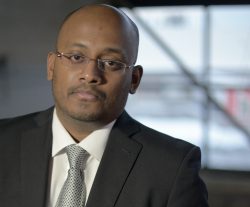 My PhD in religious studies ended up being on social movement activism and the Sri Lankan Tamil diaspora in Canada, but in the first couple years of my dissertation, I jumped from topic to topic. My field exam wasn’t even on my final topic. My mentors, however, allowed me to go through with it and were open to an interdisciplinary thesis; I’m thankful that they let the research go where it went.
My PhD in religious studies ended up being on social movement activism and the Sri Lankan Tamil diaspora in Canada, but in the first couple years of my dissertation, I jumped from topic to topic. My field exam wasn’t even on my final topic. My mentors, however, allowed me to go through with it and were open to an interdisciplinary thesis; I’m thankful that they let the research go where it went.
I took about 5 ½ years to finish my doctoral studies, and during that time I got married and started a family. Even considering just field research and language requirements, finishing within the advised 4 years is a fantasy, and I’m satisfied with the amount of time I spent on my PhD.
In the beginning, I felt a sense of community, but about half-way through my cohort started feeling unsupported, and professors seemed to echo the sentiment. Now, I feel part of an academic community, but really just within my field and mostly over social media.
Looking back, I wish that I’d had more training in practical academic issues, like CVs, cover letters, and grants. Public intelligibility, so that your research isn’t just in an academic journal, is also important. I had some access to SSHRC funds and a few side grants, and am now on a SSHRC post-doc researching violence issues in Indigenous and Somali communities in Ontario, and I recognize how critical it is to have funding, and more funding options—that’s what allows you do your real work.
 My PhD in religious studies ended up being on social movement activism and the Sri Lankan Tamil diaspora in Canada, but in the first couple years of my dissertation, I jumped from topic to topic. My field exam wasn’t even on my final topic. My mentors, however, allowed me to go through with it and were open to an interdisciplinary thesis; I’m thankful that they let the research go where it went.
My PhD in religious studies ended up being on social movement activism and the Sri Lankan Tamil diaspora in Canada, but in the first couple years of my dissertation, I jumped from topic to topic. My field exam wasn’t even on my final topic. My mentors, however, allowed me to go through with it and were open to an interdisciplinary thesis; I’m thankful that they let the research go where it went.
I took about 5 ½ years to finish my doctoral studies, and during that time I got married and started a family. Even considering just field research and language requirements, finishing within the advised 4 years is a fantasy, and I’m satisfied with the amount of time I spent on my PhD.
In the beginning, I felt a sense of community, but about half-way through my cohort started feeling unsupported, and professors seemed to echo the sentiment. Now, I feel part of an academic community, but really just within my field and mostly over social media.
Looking back, I wish that I’d had more training in practical academic issues, like CVs, cover letters, and grants. Public intelligibility, so that your research isn’t just in an academic journal, is also important. I had some access to SSHRC funds and a few side grants, and am now on a SSHRC post-doc researching violence issues in Indigenous and Somali communities in Ontario, and I recognize how critical it is to have funding, and more funding options—that’s what allows you do your real work.
Discussion